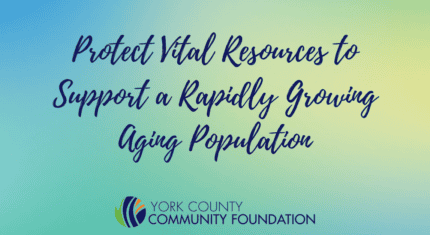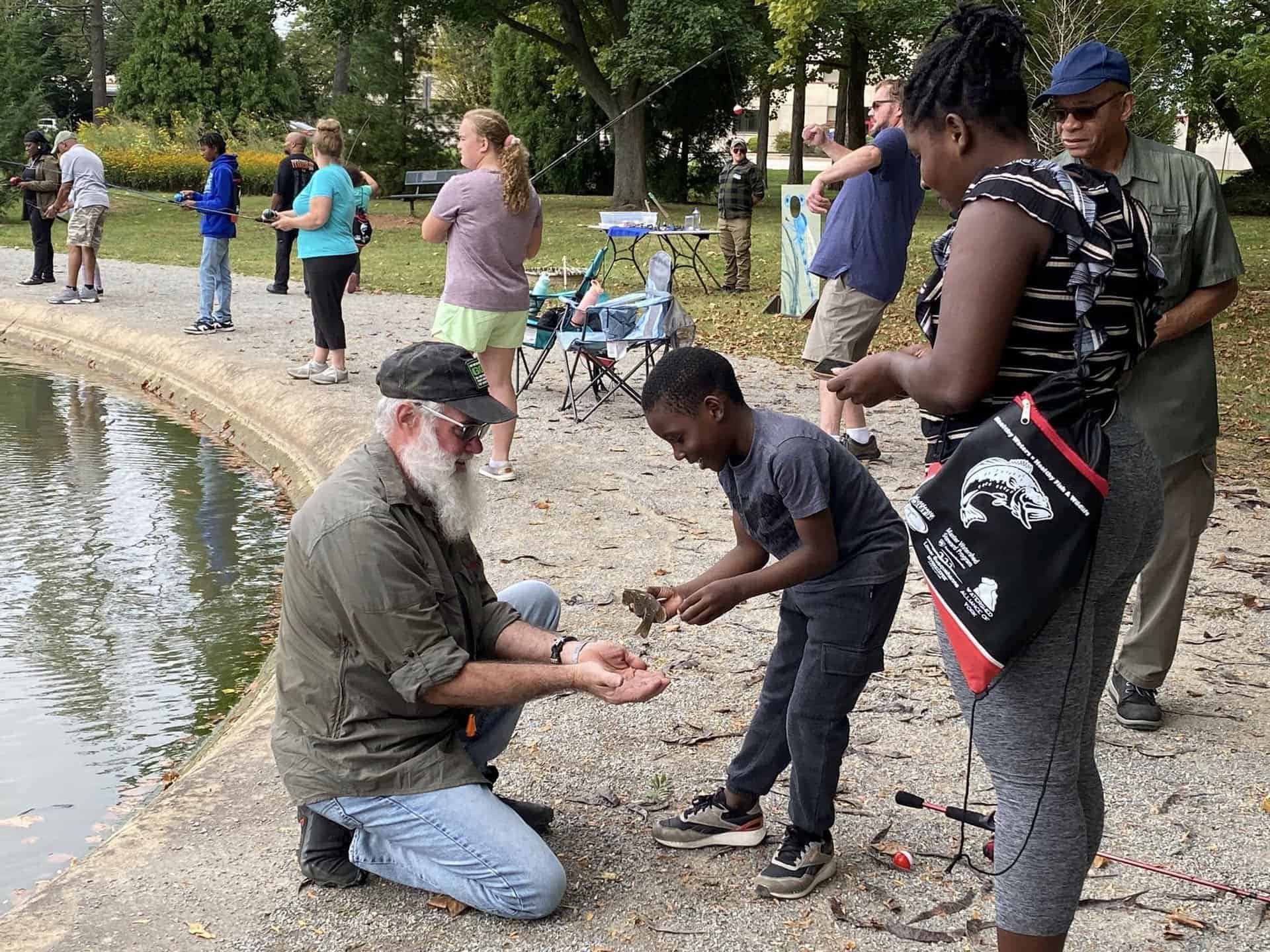Michele McKinney works as the Finance and Payroll Specialist at YCCF and is a long-time supporter of the York County Society for the Prevention of Cruelty to Animals (YCSPCA). After a staff visit, Michele fondly remembered the day her family welcomed Gracie Mae into their home.

“We would randomly stop in to see which dogs were available,” shared Michele. Despite knowing Saturdays were busy days at the shelter, Michele and her husband Mark decided to take a look. The first kennel on the right had two Pitbull puppies. (Siblings.) The feisty little gray one fighting to be at the front of the kennel is the one that caught their eye. “I really like this one!” Mark exclaimed to Michele, who responded, “If you are serious, we need to get to the front desk to adopt her.” Realizing their chances of finding another puppy were slim, they rushed back through the kennels to get in line.
As they anxiously waited behind four other people, the line grew even longer. After finally getting to the front, Mark and Michele submitted their request to adopt “Scarlett” the grey Pitbull puppy, then heard several people behind them let out loud groans. “Luckily, we had been pre-approved for adoption and were thrilled to take home the best little, bitty Pitty ever! I’ve never had such a sweet dog. She loves everyone,” said Michele with pride.
Since earning its designation as a no-kill shelter in 2022, the York County SPCA has worked tirelessly to save every animal that enters its facility. But shelters need money to continue saving lives and to provide safe and loving homes for the animals they rescue.
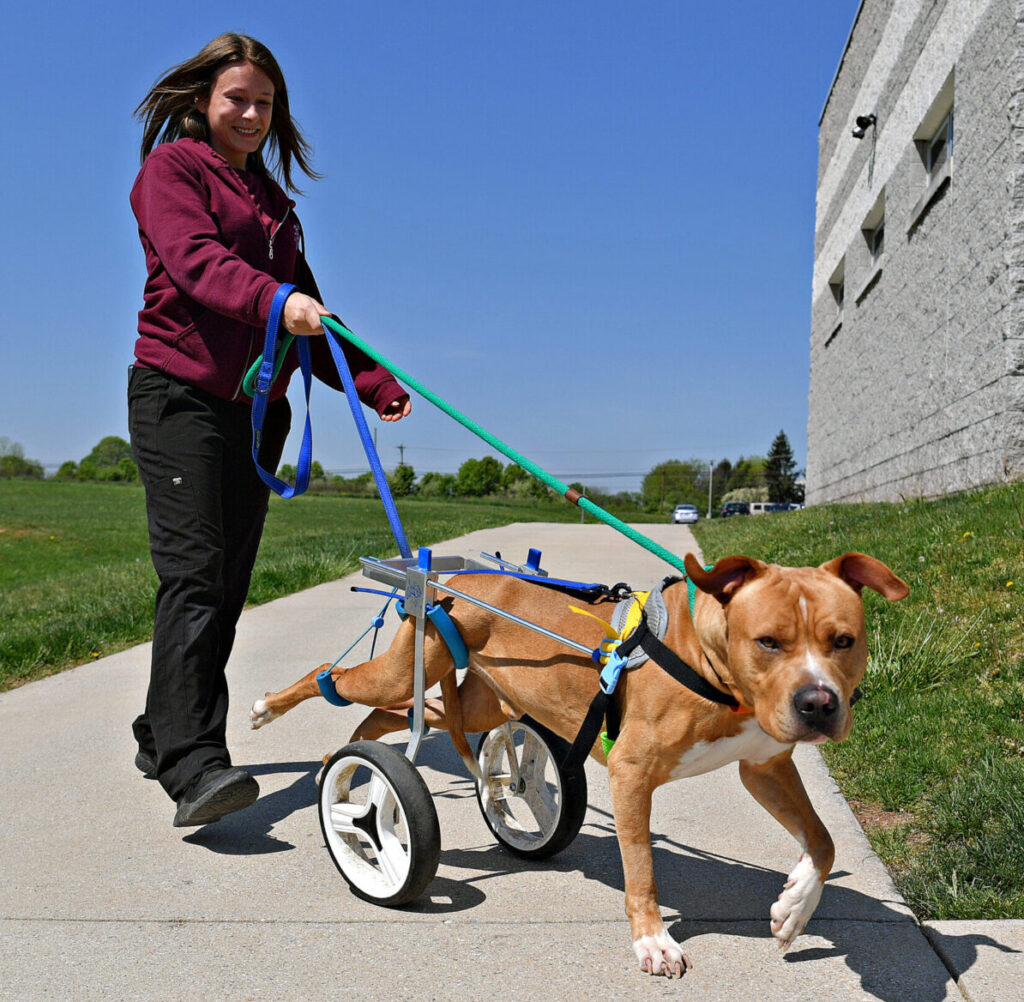
The YCSPCA is often seen as a place solely for adopting animals or having pets spayed or neutered. However, it plays a much larger role in our community. In 2023, the YCSPCA saw a 12% increase in shelter intakes with 2,625 more animals becoming temporary residents. The average stay of a shelter pet is 30 days before they are either placed with a loving family or returned to a grateful owner after being reported lost.
As with many nonprofits serving vulnerable populations, whether human or animal, space is limited, and because of the consistent increase of stray dogs and cats each year, the YCSPCA’s goal of expanding its facility and maintaining the no-kill designation has become a community-wide effort.
Chad Myers, Director of Philanthropy at the YCSPCA, says education is key to combatting many issues pertaining to animal welfare. “We are looking to members of the community to do their part to help us decrease the number of abused or surrendered dogs and to help control the community cat population. One way people can do this is by sharing the programs and services we offer, and by donating, of course,” shared Chad during our recent visit to the YCSPCA.
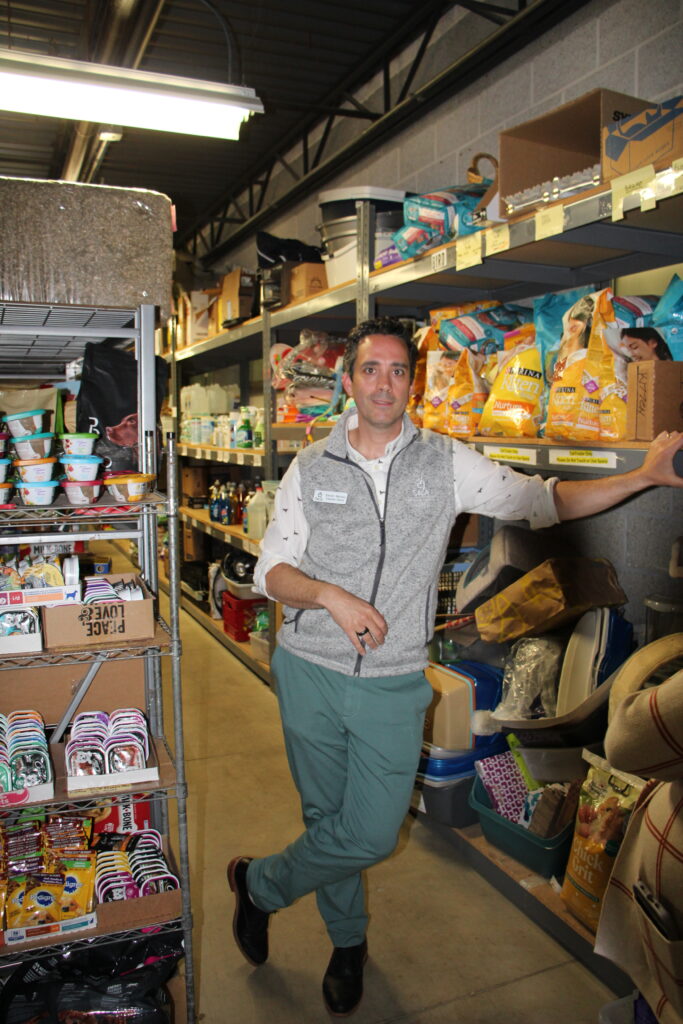
Individuals who prefer to foster animals rather than permanently adopt them are provided with all the supplies, medical care, and advice they need while the animals are in their home. For pet owners who are unable to afford costly veterinary care, the shelter’s CARMA program offers low cost life-saving surgeries and medications to keep beloved family members together and healthy. The rising cost of food has also impacted the ability for people to care for their pets. In 2023, the YCSPCA’s pet food pantry distributed over 27,000 lbs. of food – a 17% increase from the year before. Most of the food is donated by individuals and national food chains.
Last year, the spay/neuter clinic performed a record-breaking 11,862 surgeries of mostly community/stray cats. This effort also relies on community volunteers to help trap stray animals in their neighborhoods by using specific crates and trapping instructions provided by the YCSPCA. This service helps to minimize the community cat population and also helps to prevent the spread of life-threatening diseases like rabies.
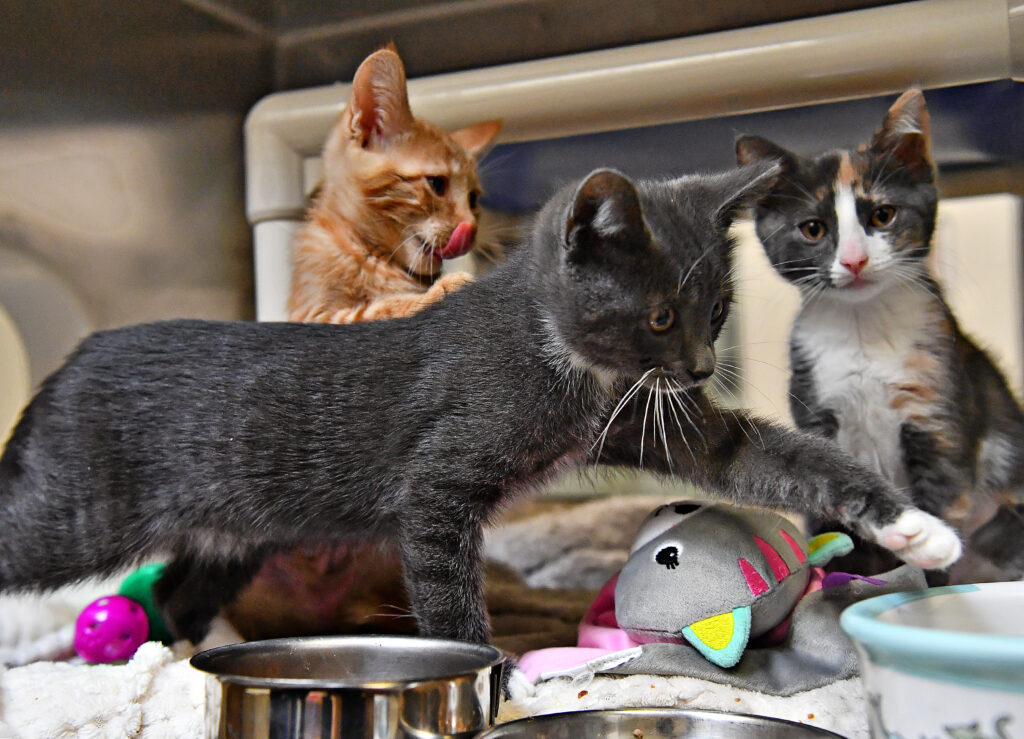
“We all know it costs money to save lives, and saving lives is our main goal,” shared Chad when asked about the benefit of having an endowment at YCCF. “With more than $68,000 in annual contributions from both our agency fund and from several designated grants from YCCF Fundholders, we are able to cover some of the costs of our operations and programming,” he continued.
But it’s not enough!

The YCSPCA does not receive funding from the state or federal governments nor from the national ASPCA. The majority of its revenue (52%) comes from individual donors. But what most donors don’t realize is that by contributing to a nonprofit’s agency fund, each dollar donated can go much farther.
An Agency Fund is established by a nonprofit organization or by an individual on behalf of a nonprofit. The fund is then stewarded by the Community Foundation; meaning YCCF’s outsourced investment managers work to grow the fund over time.
So, the next time you plan on making a donation to a nonprofit, consider donating to their nonprofit agency fund at YCCF and take comfort in knowing your contribution will last as long as the organization, and for generations to come.
As an enthusiastic fan of animal puns, Chad added, “Our donors make saving lives “paw-ssible!”



